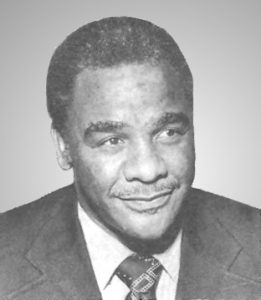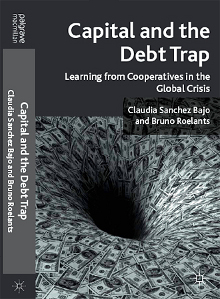By Jonathan Michael Feldman
“…having got into the university, English studies had within twenty years converted itself into a fairly normal academic course, marginalizing those members of itself who were sustaining the original project. Because by this time what it was doing within the institution was largely reproducing itself, which all academic institutions tend to do: it was reproducing the instructors and the examiners who were reproducing people like themselves. Given the absence of that pressure and that demand from groups who were outside the established educational system, this new discipline turned very much in on itself.”
Raymond Williams, “The Future of Cultural Studies,” in Politics of Modernism, London: Verso, 2007: 153.
Nationalists and Cosmopolitans
 Today, Marxism is at a crossroads concerning the central split between a growing nationalist, xenophobic politics on the right and mainstream Neoliberal cosmopolitanism defined by concessions to globalization, immigration and the free movement of labor. The Cosmopolitan Crisis can be defined by the ways in which the Left objectively becomes an appendage of Neoliberalism or is unable to create a meaningful political space to its Left. This means that Leftists, without their self-conscious awareness, can potentially become aligned with the forces promoting a Neoliberal agenda. This alignment occurs when ideologies celebrating “difference,” “localized resistance,” or “determining structures” mitigate the possibilities for solidarity and comprehensive social change. The alignment is based in part on the role of academics in manufacturing the fetishism of resistance, the fetishism of difference and the fetishism of capital. While racism, patriarchy and capitalism represent constraints on democracy and equality, academics potentially fetishize their role as a way to promote their own representational power. Taking a page from Raymond Williams, this representational power is partially based on the decoupling of academic life from the real needs of those excluded from academic establishments. Before elaborating upon these mechanisms behind the Cosmopolitan Crisis, I want to first explicate the obvious but not always clearly understood fault lines which face us.
Today, Marxism is at a crossroads concerning the central split between a growing nationalist, xenophobic politics on the right and mainstream Neoliberal cosmopolitanism defined by concessions to globalization, immigration and the free movement of labor. The Cosmopolitan Crisis can be defined by the ways in which the Left objectively becomes an appendage of Neoliberalism or is unable to create a meaningful political space to its Left. This means that Leftists, without their self-conscious awareness, can potentially become aligned with the forces promoting a Neoliberal agenda. This alignment occurs when ideologies celebrating “difference,” “localized resistance,” or “determining structures” mitigate the possibilities for solidarity and comprehensive social change. The alignment is based in part on the role of academics in manufacturing the fetishism of resistance, the fetishism of difference and the fetishism of capital. While racism, patriarchy and capitalism represent constraints on democracy and equality, academics potentially fetishize their role as a way to promote their own representational power. Taking a page from Raymond Williams, this representational power is partially based on the decoupling of academic life from the real needs of those excluded from academic establishments. Before elaborating upon these mechanisms behind the Cosmopolitan Crisis, I want to first explicate the obvious but not always clearly understood fault lines which face us.
The dominant choices can be seen in the dualities of Donald Trump and Hillary Clinton in the U.S., Marie La Penn and François Hollande in France, or Jimmie Åkesson and Stefan Löfven in Sweden. The first in this group embraces right-nationalism, a symbolic embrace of the nation, racism, and varying degrees of a rhetorical critique of globalization. Trump recently argued that Hillary Clinton was guiding a “global power structure” which stacked the economy against the working class. Far earlier, in December of 2014, La Penn argued that Globalization was “a barbarity” and that the world was now “in hands of multinational corporations and large international finance.” Åkesson, leader of the far-right Sweden Democrats (SD), belongs to a party that considers “ownership as a prerequisite for a successful society.” Their platform advocates “a controlled, responsible market economy.” Rather than debunk growth, they argue it “is essential to sustain our prosperity,” yet “must be balanced against the important social values such as public health, heritage, environment, social equity and national sovereignty.” In sum, all three of these xenophobic parties—the Republican Party, the National Front, and the Sweden Democrats—see a potential conflict between a globalized growth regime and national interests.
The leading alternative to the far-right is the Neoliberal center. In the United States, recent revelations attached to Hillary Clinton’s emails suggest that Wall Street leaders help determine who gets leading government posts. In France, the Socialist Government pushed a parliamentary measure supporting “a controversial labor proposal—which would give companies more power to fire workers and extend hours—without a vote.” In Sweden, falling unemployment, increased housing construction, and expanded exports have mitigated austerity. Nevertheless, even in Sweden 94 percent of the population now lives in a municipality where there is a housing shortage. This proportion has significantly increased in recent years. In 2015, 68 of 288 localities in Sweden had an unemployment rate of 10 percent of higher according to statistics complied by Ekonomifakta. Petter Nilsson of the Left Party has argued that the Social Democratic Party became less radical after the 1970s: “They set an inflation target, allow unemployment to rise, and Sweden becomes a traditional European country.” This helped the right-wing parties unite, which they had previously been unable to do. As a result, the right-wing bloc won “two elections in a row, which was unheard of before,” polarizing Swedish politics and leading the Social Democrats to feel that they needed “to win back the middle-class swing voters who went to the right-wing coalition.” Yet, the Left’s failures have helped sustained the right in Sweden over two parliamentary electoral cycles (2010 and 2014).
A central choice of the left is to remain wedded to narrow Cosmopolitan concerns so that it is coopted by the Cosmopolitan right or begin to adopt positions of the Nationalist Left so as to stem the far-right ascendency. Another key choice is to move beyond Postmodern, identity politics and embrace economic democracy as a social inclusion mechanism. Black Lives Matter has led the movement beyond the former and towards the latter in its recent policy proposals. Nevertheless, the hegemonic position within the Social Democratic and various parts of the academic left has been to embrace aspects of Left Cosmopolitanism combined with a belief in the power of unregulated globalization which is the Neoliberal agenda. This position means that migration, diversity, and a discourse centered on gender and ethnic inclusion are prioritized with less attention paid to capital mobility, industrial policy, national or local anchoring of jobs and managed trade relations. Although some on the Left critique globalization, many champion its contributions to growth and poverty reduction in India and China. They rhetorically align themselves with the agenda of transnational corporations which help destroy jobs in the North by promoting business opportunities in the South. Others are critical of outsourcing, but see the nation state as passé with “international solidarity” the cure all for global capitalism. While there are merits to aspects of these stances, the inability of the Left Cosmopolitan discourse to convince voters to cease supporting the far-right should give us pause.
 Some who argue that identity politics and class politics are not mutually exclusive point to Harold Washington’s tenure as mayor of the City of Chicago and aspects of the Rainbow Coalition movement. Yet, Washington was the exception to the rule, with his administration emphasizing the importance of manufacturing, reindustrialization and a proactive politics to encourage equitable economic development. Today, identity politics has very little connection to the interests promoted by Harold Washington. Mel King, the original founder of the Rainbow Coalition idea was a professor at the Massachusetts Institute of Technology who ran for mayor of Boston and the U.S. Congress. One of his principal economic advisers was Bennett Harrison, a professor at MIT who co-authored The Deindustrialization of America: Plant Closings, Community Abandonment and the Dismantling of Basic Industry. Throughout his life Harrison made links between a progressive vision of reindustrialization and economic development to the problems facing African Americans. Yet, the strain of thought represented by Washington, King and Harrison is almost non-existent in contemporary visions of identity politics. In contrast, William Julius Wilson, through various books like The Truly Disadvantaged and When Work Disappears, zeroed in on the links between factory closings and the economic underdevelopment of African American communities.
Some who argue that identity politics and class politics are not mutually exclusive point to Harold Washington’s tenure as mayor of the City of Chicago and aspects of the Rainbow Coalition movement. Yet, Washington was the exception to the rule, with his administration emphasizing the importance of manufacturing, reindustrialization and a proactive politics to encourage equitable economic development. Today, identity politics has very little connection to the interests promoted by Harold Washington. Mel King, the original founder of the Rainbow Coalition idea was a professor at the Massachusetts Institute of Technology who ran for mayor of Boston and the U.S. Congress. One of his principal economic advisers was Bennett Harrison, a professor at MIT who co-authored The Deindustrialization of America: Plant Closings, Community Abandonment and the Dismantling of Basic Industry. Throughout his life Harrison made links between a progressive vision of reindustrialization and economic development to the problems facing African Americans. Yet, the strain of thought represented by Washington, King and Harrison is almost non-existent in contemporary visions of identity politics. In contrast, William Julius Wilson, through various books like The Truly Disadvantaged and When Work Disappears, zeroed in on the links between factory closings and the economic underdevelopment of African American communities.
The Cosmopolitan Crisis of the Left
 Left Cosmopolitanism without Left Nationalism will lead to the ascendancy of Right Cosmopolitanism. Within the U.S., the Left has begun to debate the merits of winning over Trump voters. The Clinton campaign’s celebration of diversity and Wall Street, many Brexit supporters’ mutual hostility to both multiculturalism and globalization, suggest the fault lines. The price of support for an anti-racist stance is usually Neoliberalism, with the exception to the rule being the campaigns of Bernie Sanders or Jeremy Corbyn. While Green parties offer a third option, they are often limited by their inability to avoid a spoiler stigma (as in the U.S.) or their vicarious dependency on larger Social Democratic parties (as in Sweden). In both cases, Green parties are trumped by Right Neoliberalism or political parties in allegiance with dystopian fracking, coal or militarist interests. Even where Corbyn attempts to bridge the gap between Left Cosmopolitanism and Left Nationalism, the quality of some Left Cosmopolitans’ debates with Right Nationalists threatens to erode his support or legitimacy. The current contest centers on various charges that have surfaced in The Guardian, The Independent and The Telegraph that Corbyn is soft on anti-Semitism. While much (if not all) of the argument may be without substance, the capacity to launch such claims is partially dependent on a politics that cannot distinguish between anti-Semitism and hostility to Israeli policies. This predicament potentially infects the Left and the right.
Left Cosmopolitanism without Left Nationalism will lead to the ascendancy of Right Cosmopolitanism. Within the U.S., the Left has begun to debate the merits of winning over Trump voters. The Clinton campaign’s celebration of diversity and Wall Street, many Brexit supporters’ mutual hostility to both multiculturalism and globalization, suggest the fault lines. The price of support for an anti-racist stance is usually Neoliberalism, with the exception to the rule being the campaigns of Bernie Sanders or Jeremy Corbyn. While Green parties offer a third option, they are often limited by their inability to avoid a spoiler stigma (as in the U.S.) or their vicarious dependency on larger Social Democratic parties (as in Sweden). In both cases, Green parties are trumped by Right Neoliberalism or political parties in allegiance with dystopian fracking, coal or militarist interests. Even where Corbyn attempts to bridge the gap between Left Cosmopolitanism and Left Nationalism, the quality of some Left Cosmopolitans’ debates with Right Nationalists threatens to erode his support or legitimacy. The current contest centers on various charges that have surfaced in The Guardian, The Independent and The Telegraph that Corbyn is soft on anti-Semitism. While much (if not all) of the argument may be without substance, the capacity to launch such claims is partially dependent on a politics that cannot distinguish between anti-Semitism and hostility to Israeli policies. This predicament potentially infects the Left and the right.
Given this background, a central question for Marxism (or even anarchism) now becomes whether it will function as a de facto ally of the Neoliberal regime which it purports to nominally despise. This de facto alliance can occur in three possible ways that can be classified by distinct mechanisms.
The first occurs when the “scientific” analysis of objective realities and material conditions clouds interest in potential change. For example, class analysis simply revolves around “bourgeois sociology,” innate descriptions of occupational categories rather than (also) the proactive mobilization of groups. A central mechanism here is historicism, in which the power of given circumstances trumps free will and social movement power. Anarchists tend to be freer from this mechanism than many Marxists as a key part of their lexicon builds on the study of past and present social movements.
The second occurs through voluntarism in which strategies or theories of social change potentially do next to nothing or insufficiently challenge the concentrated military, political, economic and media power of established elites or ruling classes. A central mechanism here is magical thinking and the superfluous investment in badly designed social movements which actually maintain the alienation of the “multitude” or potential publics from actually accumulating power in any systematic fashion. Here many anarchists have a potentiality to fall into the naïve voluntarist trap. This trap is the fetishism of resistance, i.e. the resistance to the status quo in spaces marginal to the system is held up as the fulcrum point for social change. In contrast, one could better argue that social change occurs as movements systematically accumulate political, economic and media capital dispersed through diverse spaces.
The third occurs when concerns for oppression related to gender, racial (ethnic), or refugee status displaces an analysis of actual political problems or solutions. This can take the form of “victimization studies” so popular among students of ethnic studies and related academic niches, i.e. a “structure of feeling” in which empathy trumps strategic ideas about how to de-victimize a group by empowering it. A central mechanism here is the fetishism of difference or the valorization of difference in which academics, journalists and politicians turn difference into a kind of exchange value for power accumulation in their respective spheres. While the reality of racism and patriarchy does create differences, these differences can be manipulated when a cultural politics substitutes for economic reforms or an inclusive politics of economic equality.
In the Cosmopolitan Left version of this problem, solidarity with the oppressed becomes a way of distancing one’s self from the potential “victim’s” real situation, e.g. empathy substitutes for empowerment, a discourse about rights and solidarity (something apparently promoted by “social movements”) substitutes for discussions of specific designs for mechanisms to give people actual economic, media and political power. So-called “anarchist” deconstructions of “social engineering” from above end up displacing participatory planning to both redesign and remake institutions from below. The Left potentially suffers from an inability to “connect the dots,” to link problems of militarism, climate change, economic inequality, and xenophobia by over or under-stating the relationship of capitalism to these problems, e.g. the economic is privileged over the relative autonomy of the (militarist) state or racism is decoupled from an analysis of proactive, democratic economic power.
In Europe, one tendency is for parts of the anti-racist Left to copy the worst aspects of sectarian, American-incubated New Left politics of the 1960s and 1970s—so much so that Europeans are actually behind actual U.S. political developments. In the Swedish context (held up by many in the U.S. as a shining example), no variety of Left academic discourse has readily led to a practical politics stemming the tide of the far-right ascendancy and the actual marginalization of many communities in the “New Sweden” (a term used to define a country defined by growing ethnic diversity). Unemployment rates for immigrants far outpaces that of natives. In the American context, the aforementioned debate about “winning over Trump voters” that we now see in some circles is about a year (some would argue decades) late. Two recent books related to this question, one by Jon Rynn and the other by Brian D’Agostino, have been systematically ignored because the Left cultural elite was disinterested.
 Another variant of the fetishism of difference occurs when the class factors leading to support for the Nationalist Right are simply reduced to racism even though there is evidence suggesting that supporters of Trump, Swedish Democrats, and Brexit are partially motivated by class reasons (rejecting globalization or tied to unemployment) and not simply racism. For example, one poll shows that in the Brexit case, of those believing globalization was “a force for ill,” 71 percent supported the leave position. In contrast, among those believing globalization was a force for good, only 49 percent supported the leave position. These figures don’t discount the fact that Brexit supporters were more likely to dislike multiculturalism, feminism, and immigration than Brexit opponents. Yet, these forces may be associated with cosmopolitan-sanctioned globalization and indifference to the working class or those most marginalized by automation, outsourcing or skills shifts.
Another variant of the fetishism of difference occurs when the class factors leading to support for the Nationalist Right are simply reduced to racism even though there is evidence suggesting that supporters of Trump, Swedish Democrats, and Brexit are partially motivated by class reasons (rejecting globalization or tied to unemployment) and not simply racism. For example, one poll shows that in the Brexit case, of those believing globalization was “a force for ill,” 71 percent supported the leave position. In contrast, among those believing globalization was a force for good, only 49 percent supported the leave position. These figures don’t discount the fact that Brexit supporters were more likely to dislike multiculturalism, feminism, and immigration than Brexit opponents. Yet, these forces may be associated with cosmopolitan-sanctioned globalization and indifference to the working class or those most marginalized by automation, outsourcing or skills shifts.
In the case of Trump, one of his greatest sources of support was white registered voters, without a college degree. Many Left commentators, backed by mainstream political science and journalism, argue that racist attitudes or the peculiarities of “white people” best explain Trump’s rise. Thomas Edsall, in an August column for The New York Times, has confirmed a conclusion that I have shared with my colleagues, namely the ways in which Trump has exploited the limits of Clinton’s politics (and vice versa). As he writes: “the Trump campaign — both through the support Trump generates among working-class whites and the opposition he generates among better educated, more affluent voters — has accelerated the ongoing transformation of the Democratic Party. Once a class-based coalition, the party has become an alliance between upscale well-educated whites and, importantly, ethnic and racial minorities, many of them low income.” Even if attitudes related to race drive Trump support, we know that many whites don’t support Trump and that winning over those that do might help break down race divides that empower the Nationalist and Cosmopolitan rights. The Pew Research Center’s July study found that among Trump voters, 90 percent said the economy was “very important,” in contrast to 80 percent for Clinton voters. Trade policy was also more important to Trump voters (64 percent listing it as very important) than to Clinton voters (58 percent listing it as very important). Jonathan T. Rothwell’s comprehensive study on Trump voters has been used by the Left to downplay class and inflate race explanations for Trump’s rise. Yet, even Rothwell writes: “Among Republicans who favor Trump, 58 percent oppose trade deals and 57 percent oppose reforming immigration. By contrast, among Republicans who do not support Trump, 42 percent oppose trade deals and 28 percent oppose reforming immigration laws.”
The Ascendancy of the Nationalist Right
 Against this backdrop, we turn to the Marx 2016 conference held in Stockholm on October 15th and 16th of this year. The conference was a follow up to the Marx 2013 conference three years ago. Some of the challenges posed by the Cosmopolitan Crisis were addressed by one of Sweden’s grand classical Marxist thinkers, Göran Therborn, author of The Killing Fields of Inequality. Therborn argued that the present moment was “not a time for agitation,” but rather “critical thinking.” A key element of such thinking has to account for how the 2008 financial crisis produced results that were “relatively unexpected on all sides.” One aspect of the unexpected was worker resistance at an extensive scale, including strikes and other forms of political mobilization in Greece and Spain as well as the global Occupy Movement, which traveled far beyond its epicenter in Zuccotti Park in New York City. In Spain, the Indignados movement was able to transform itself into the Podemos political party. Greece saw the rise of Syriza. Yet, Therborn says that these movements were crushed.
Against this backdrop, we turn to the Marx 2016 conference held in Stockholm on October 15th and 16th of this year. The conference was a follow up to the Marx 2013 conference three years ago. Some of the challenges posed by the Cosmopolitan Crisis were addressed by one of Sweden’s grand classical Marxist thinkers, Göran Therborn, author of The Killing Fields of Inequality. Therborn argued that the present moment was “not a time for agitation,” but rather “critical thinking.” A key element of such thinking has to account for how the 2008 financial crisis produced results that were “relatively unexpected on all sides.” One aspect of the unexpected was worker resistance at an extensive scale, including strikes and other forms of political mobilization in Greece and Spain as well as the global Occupy Movement, which traveled far beyond its epicenter in Zuccotti Park in New York City. In Spain, the Indignados movement was able to transform itself into the Podemos political party. Greece saw the rise of Syriza. Yet, Therborn says that these movements were crushed.
One explanation was given by Arto Bohos Artinian, a conference panelist from the City University of New York. He argued that not only the Occupy movement but also electoral politics each potentially suffered by constraining the terrain on which political battles have been waged. His account is a contribution towards deconstructing the fetishism of resistance. He explained the “energy” of the Occupy movement “has largely dissipated precisely because we did not figure out a way to generalize, to introduce that struggle in the state, in places of work, or extend it across larger parts of urban geography.” In contrast, he said “the demands of struggle on the intermediary (operational) level point in the direction of abandoning parliamentary politics as the main organizational tool of the left.” We should similarly not rely too much “on organizations optimized for tactical struggles (most anarchist structures, or as in the U.S., various leftist protest movement organizations who move from one protest campaign to another).” While these ideas were discussed, they did not enter the mainstream concerns of plenary sessions.
Therborn noted another unexpected (for some) tendency which is the rise of far-right political movements throughout Europe and the United States.
Presently, the National Front has the allegiance of the largest share of workers in France. In Sweden, the working class membership of SD comprises about half the working class membership of the Social Democrats, i.e. the far-right SD is the second largest working class party in Sweden. My own analysis of Swedish data shows that in 1988 the votes garnered by all parties to the Left of the Social Democrats was 4459 percent of the vote for the far-right SD. By 2014, that share narrowed to only 122 percent. Data compiled by Daphne Halikiopoulou and Sofia Vasilopoulou published in The Political Quarterly (July-September, 2014) support Therborn’s concerns. In France, the National Front’s share of the vote for the European Parliament increased from 6.34 percent in 2009 to 24.86 percent in 2014. In the United Kingdom, UKIP’s share increased from 6.09 percent to 26.77 percent. In Germany, the far-right got only 1 percent of the vote in 2014.
Why this “Socialism of fools”? One reason may be the absence of a socialism of non-fools. As Therborn explained, no government or political party in any rich country has attempted to systematically tackle the problems of inequality. At the same time, the ruling class elites in the IMF and World Economic Forum recognize that the increase in inequality is a potential political problem. Yet, “there are no barricades,” which has sustained the continual redistribution of wealth upwards. Kate Soper, at the London Metropolitan University, asked perhaps the most important question of the conference: “Can Marxism do more than say what has gone wrong?” She noted the problem of historicism by suggesting that a Marxism which succumbs to fatalism is problematic in its lack of ideals.
One basic problem centers on how conceptions of identity, and hence potential social mobilization, have emerged as alternatives to conceiving an alternative vision for the design of contemporary society. Therborn pointed to several key categories. The first category—class—has become problematic given a fragmentation of occupational groupings. Part of the fragmentation is based on systemic deindustrialization, beginning in the mid-1960s onwards, which has eroded “the clarity of the working class.” In the wake of deindustrialization, the middle strata has taken on a new importance. This strata has sometimes aligned with the people against the oligarchy and other times with the oligarchy against the people. In contrast to a colonial reaction to imperialism, modernity in Europe emerged from internal class conflicts, organized for example by trade unions. Other scholars, like Barbara and John Ehrenreich, have pointed to the rise of a professional managerial class (PMC) with contradictory interests to support and oppose the system.
Vivek Chibber, another plenary speaker, argued that academics in this class have promoted arbitrarily divisive ideologies. He echoed the concerns of the political theorist Adolph Reed regarding how concerns over race and ethnicity are manipulated by a political strata (tied to the PMC) that mutes the possibilities for trans-ethnic or multi-racial coalitions, i.e. the problem of the fetishism of difference. Kate Soper implicitly noted that the PMC is engaged in a politics of consumption which reproduces dystopian climate change (explaining that we should not blame Chinese workers for the cheap goods that they are producing and instead maintain a critical stance towards the consumerist life style). Socialists’ embrace of “the good life” reproduces capitalist ecocide.
Therborn said that race and religion, key forces shaping contemporary identities, have been under-theorized by the Marxist tradition. In contrast to a simplified notion of religion as the “opiate of the people,” Therborn said that religion is now reinforced in various parts of the globe and impinges on social conflicts. Evangelical and Pentecostal sects have “radiated out,” being successful in recruiting poor working class people in places like Brazil, Guatemala and Nigeria. Likewise, a global Islamist movement has emerged, rapidly expanding its political capital and reach. These tendencies potentially polarize the political landscape and complicate the ability to build a social movement analysis simply based on class. They also show us how social mobilization actually occurs in non-class-specific formations. When it came to gender, Therborn mentioned August Bebel’s book Women and Socialism, the second most read Marxist book of the Second International.
Nationalism, as suggested earlier, is becoming a central category, leading Therborn to ask: “Why does the nation have an appeal?” His answer is that for social or economic losers, the nation offers “a home in a strange world.” In a commodified world, the nation is “one of the few things you don’t have to pay for but that you have a right to.” In contrast, the nation is being challenged by both “cosmopolitan elites” and “cosmopolitan diasporas.” Nations have even become stronger, despite globalization, with increased surveillance, greater controls on the population and an increased capacity for gaining revenue. The nation may offer security for some, but there has been a “dark history” attached to “the racialization of class.” A common theme in the conference was Marx’s writings about Ireland and how ethnic (or racial) divisions in the working class have strengthened the ruling class and weakened the labor movement. Nevertheless, Friedrich Engels wrote to Karl Kautsky on February 7, 1882: “I hold the view that there are two nations in Europe which do not only have the right but the duty to be nationalistic before they become internationalists: the Irish and the Poles.” Thus, the Irish question does not simply have a Cosmopolitan reading, but also a nationalist one. Yet, the Marxist legacy on nationalism is partially ambiguous. It is far more fruitful to analyze different varieties of nationalism.
Alternatives to Right Nationalism and Cosmopolitans I: The Trap of the Politics of Resentment
 If the Left cannot come to grips with why working class people act as they do, they will not make much in the way of inroads against the Nationalist Right. With nationalism, the nation intervenes to displace the impacts of a class-based, class conscious politics. Rather than “class consciousness,” we get what Therborn called “class resentment.” Rather than being based on “a sense of collective identity,” built on skills, capacity and hope for collective change, we get an “individualized” sense of injustice in which the enemy is not capitalism, corporations or the ruling class but a “social establishment.” A critical observation of Therborn was that xenophobia, which feeds the far-right, is an expression of class resentment, not just racism. He thereby argued that while we must “have respect for refugees suffering from UK and US invasions,” there is also a group of persons who do not benefit from immigration and free trade. This reality is part of the project of updating 19th Century Marxism with 21st Century realities.
If the Left cannot come to grips with why working class people act as they do, they will not make much in the way of inroads against the Nationalist Right. With nationalism, the nation intervenes to displace the impacts of a class-based, class conscious politics. Rather than “class consciousness,” we get what Therborn called “class resentment.” Rather than being based on “a sense of collective identity,” built on skills, capacity and hope for collective change, we get an “individualized” sense of injustice in which the enemy is not capitalism, corporations or the ruling class but a “social establishment.” A critical observation of Therborn was that xenophobia, which feeds the far-right, is an expression of class resentment, not just racism. He thereby argued that while we must “have respect for refugees suffering from UK and US invasions,” there is also a group of persons who do not benefit from immigration and free trade. This reality is part of the project of updating 19th Century Marxism with 21st Century realities.
Therborn’s observations led me to ask, “how can the Left offer something to SD-type supporters rather than just degrade them as racists and fascists?” Therborn replied that supporters of La Penn and Trump should not be dismissed simply as “racists.” Rather, we need to address such persons “in a new way,” beyond the language used in the 19th and 20th Centuries. We need to “attack the reason for class resentment” through “a new political style.” He took some inspiration from the Jeremy Corbyn and Bernie Sanders campaigns as progressive alternatives. The rhetoric of the far-right and these politicians seems to share “the refusal to follow the conventional rules” as “an important part of their appeal.” In contrast, other politicians “sound boring and out of touch with ordinary people” (a fate that seems to characterize the right Cosmopolitans). Podemos also was built on a kind of political charisma. At least one member of the audience gave a Left Cosmopolitan reading of Therborn, deconstructing him as somehow negative towards migration. While Therborn noted immigrant workers’ contribution, he also argued that such a stance was hardly sufficient, i.e. such a solidarity politics does not necessarily address the politics of resentment. Thus, there is nothing wrong with solidarity per se, but notions of solidarity become a problem when they displace a proactive politics that can stop the far-right’s ascendancy.
Alternatives to Right Nationalism and Cosmopolitans II: Democratization of Space and Time
 The democratization of media space might be of interest to Marxists worried about the far-right’s ascendancy. A countervailing model could be seen during the Occupy Movement, when a self-organized media spotlight was serially shifted from one Occupy venue to another using channels like Livestream. In contrast, the Global Teach-In was able to link several Occupy and affiliated locations in real time, helping to mobilize thousands of local activists in the U.S., U.K., Sweden, and elsewhere, who debated questions concerned with economic democracy, demilitarization, and ecological renewal. Nevertheless, Kajsa Ekis Ekman, a leading left journalist, argued that Marxists should not analyze the media. Rather, they should come up with new facts and “say what society should look like.” Nevertheless, a recent academic study shows that “the media effect shows to be more important for the SD compared to the other parliamentary parties, similar in size.” The Swedish media, led by the public television network SVT, has given tremendous media exposure to this far-right party and helped legitimate it (even and especially when debating it). While providing an analysis of various class fragments, Ekman did not address the problem of a (subjective) class for itself, but rather focused on the (objective) categories of a class in itself, i.e. occupational categories and other objective distinctions. The problem is that the Swedish Left’s ways of organizing are dysfunctional, driven by the deconstruction Ekman may be concerned with but also by a failure to organize properly. So how class manifests itself in actual movements is critical.
The democratization of media space might be of interest to Marxists worried about the far-right’s ascendancy. A countervailing model could be seen during the Occupy Movement, when a self-organized media spotlight was serially shifted from one Occupy venue to another using channels like Livestream. In contrast, the Global Teach-In was able to link several Occupy and affiliated locations in real time, helping to mobilize thousands of local activists in the U.S., U.K., Sweden, and elsewhere, who debated questions concerned with economic democracy, demilitarization, and ecological renewal. Nevertheless, Kajsa Ekis Ekman, a leading left journalist, argued that Marxists should not analyze the media. Rather, they should come up with new facts and “say what society should look like.” Nevertheless, a recent academic study shows that “the media effect shows to be more important for the SD compared to the other parliamentary parties, similar in size.” The Swedish media, led by the public television network SVT, has given tremendous media exposure to this far-right party and helped legitimate it (even and especially when debating it). While providing an analysis of various class fragments, Ekman did not address the problem of a (subjective) class for itself, but rather focused on the (objective) categories of a class in itself, i.e. occupational categories and other objective distinctions. The problem is that the Swedish Left’s ways of organizing are dysfunctional, driven by the deconstruction Ekman may be concerned with but also by a failure to organize properly. So how class manifests itself in actual movements is critical.
Christian Fuchs, author of Reading Marx in the Information Age, was given a potential platform at the conference for expounding on how new media might be deployed in a revolutionary fashion to address the various ecological, economic and postcolonial contradictions of the contemporary era. Yet, Fuchs instead preferred a kind of Talmudic decoding of Marx’s work in a lecture that was hard to fathom. Any radical media theory worth its salt must confront the fact that the representational power of media is based on a kind of exchange system involving economic circuits of power. The mass public is relatively alienated from these circuits in mainstream media, the economic form of which Marx describes in Volume 1 of Capital (which was Fuch’s primary concern). Popular culture, once viewed by the American Left as showcasing popular (progressive) dissent, nevertheless showcased Donald Trump. Fuchs’s book has zero reference to Bertolt Brecht, one of the left’s signature theorists of the proactive power of media. Brecht explained that citizens could create new spaces for social mobilization if they creatively used the media to organize (via mass-to-mass communication). Instead, contemporary Left media and most academic formats simply reproduce the spectacle of point-to-mass communication. Facebook’s innovation was to turn point-to-point communication (linking individuals and potentially bypassing elite broadcasting media) into a kind of do it yourself spectacle. Now we can alienate ourselves without depending on the broadcasting power of big media. The fetishism attached to either economic power or media power without reference to the creation of the new spaces specified by Brecht is a dead end. While Brecht may be beyond Fuch’s concerns, one has to question why deductive readings of Marx are more important than synthetic applications of Marx.
The deductive tendency was exemplified by another speaker, Elena Louisa Lange, whose talk was entitled “What Marx’s Critique of Vulgar Economy Can Teach Us Today.” Fuchs correctly explained that “economy is a social relation,” but expressed disinterest in analyzing a “post-capitalist system.” She also argued that cooperatives will not eliminate capitalism. In contrast, her co-panelist Paul Raekstad was more concerned with the “prefigurative” spaces which potentially create what C. L. R. James called, the Future in the Present. Raekstad explained a principle which was ensconced in the early thinking of the American New Left, i.e. the idea that the way we organize and politically act today, our “social relations” and “culture,” should embody the future society we want to create. Raekstad linked Michael Lebowitz’s concerns with alternative spaces and Carl Boggs’s writings on “prefigurative communism” to the practices of the Occupy Movement and the equivalents in Europe previously addressed by Therborn.
Lange countered by suggesting that Raekstad was “too optimistic about human agency.” According to Lange, it was not human beings but rather “capital” which “is the subject of the historical process” for Marx. Lange emphasized the problem of “the fetishism of commodities” as a counterpoint, but it is not apparent what this really means. Capitalism devalues human agency, appearing to eliminate it through: abstract exchanges of finance, spectacular displays of commodities in which workers’ inputs are concealed, and by reducing labor to an object of capitalist decision-making. If anything, prefigurative movements potentially constitute a counter-culture antagonistic to commodity fetishism, a point duly noted by the New Left but neglected by those Jon Gerassi once called “technicians of the Left.”
The Left itself promulgates the fetishism of capital by failing to see commodity fetishism and “capital” as the other side of alienated relations. For example, the landlord is the other side of our investments in rent. The traditional job is the other side of our labor time investments in non-democratic spaces. The spectacle is the other side of our investment in what Stanley Aronowitz has called “colonized leisure.” Each investment is the other side of a potential alternative to the way our capacities are deployed. Academic Marxism potentially inflates the decision-making power and role of the intermediaries of landlord, capitalist, bureaucracy, media corporation, etc. by denying the capacity for de-alienation. When I asked Lange about de-alienation she suggested this was nothing of interest to Marx (or the latter Marx), apparently embracing Louis Althusser’s distinction between the early Marx focused on alienation and the “mature” Marx focused on capitalist operations. This distinction is the holy writ of the fetishism of capital and the elixir of historicists everywhere. In contrast, Seymour Melman, in his book After Capitalism, explains how dealienation (tied to cooperatives) provides a mechanism beyond such fetishism.
Alternatives to Right Nationalism and Cosmopolitans III: The Capacity for Industrial Policy and Cooperative Networks
 While historicism should give us pause, so too should voluntarism. Anwar Shaik, a key plenary speaker, addressed the conference by explaining themes attached his new book, Capitalism: Competition, Conflict, Crisis. In an extensive conversation with Shaik preceding the conference, I asked him a series of questions about the capacity of either cooperatives or industrial policy to create alternatives to the present Neoliberal economic realities. Shaik’s position was that on the one hand the Left has distanced itself from a discourse leading to proactive actions vis-à-vis key centers of capitalist decision-making, but also that the opportunities for remedial action are potentially constrained by basic laws of capitalist accumulation.
While historicism should give us pause, so too should voluntarism. Anwar Shaik, a key plenary speaker, addressed the conference by explaining themes attached his new book, Capitalism: Competition, Conflict, Crisis. In an extensive conversation with Shaik preceding the conference, I asked him a series of questions about the capacity of either cooperatives or industrial policy to create alternatives to the present Neoliberal economic realities. Shaik’s position was that on the one hand the Left has distanced itself from a discourse leading to proactive actions vis-à-vis key centers of capitalist decision-making, but also that the opportunities for remedial action are potentially constrained by basic laws of capitalist accumulation.
Eric Kaufmann, in “The Politics of Immigration: UKIP and Beyond,” published in The Political Quarterly, argues that beyond economic and cultural explanations for the rise of the far-right, we must consider “a third possibility,” which is the role played by integration. With increased integration, we reduce “the number of people whom the ethnic majority perceive as ‘outsiders’ and thus moderating their sense that…‘Britain feels like a foreign country.’” One potential mechanism for integration has been industrialization, as when migrants gained jobs in what some call the Fordist wave of migration. Deindustrialization helps destroy a major bridge into the “middle class,” or higher waged jobs of the working class.
One question is whether industrial policy could promote the industrial base that facilitates integration. Robert Rowthorn and Ramana Ramaswamy in a paper published by the IMF link deindustrialization to productivity growth in the manufacturing sector rather than North-South trade. In contrast, Will Kimball and Robert E. Scott argue in a paper published by the Economic Policy Institute that “Growth in the U.S. goods trade deficit with China between 2001 and 2013 eliminated or displaced 3.2 million U.S. jobs, 2.4 million (three-fourths) of which were in manufacturing.”
While capitalism has promoted uneven development and thus segregation, a comprehensive social inclusion program could be promoted even under capitalism. Yet, it is not clear how this can be discussed simply by referring to Marx’s work other than to say that a Marxist reformist political program includes provisions for mobilizing economic power and directing social movements to gain concessions from the state. In the Communist Manifesto, Marx and Engels advocated changes in state policy including: “a heavy progressive or graduated income tax,” “centralization of credit in the hands of the State, by means of a national bank with State capital and an exclusive monopoly,” “centralization of the means of communication and transport in the hands of the State,” “extension of factories and instruments of production owned by the State; the bringing of cultivation of waste-lands, and the improvement of the social generally in accordance with a common plan.” Therefore, the idea that an industrial policy is somehow impossible is not a Marxist proposition.
A key argument these days is that with dramatic automation social policy should turn to new niches opening up in the service sector. Consider two limitations to this line of analysis. The first is that even if factories radically reduced their total number of employees, producing the same amount or more per a given unit of labor, the factory deploying robotics becomes a source of significant wealth. The wealth of the growing robotics industry has been described by a Boston Consulting Group study: “spending on robots worldwide is expected to jump from just over $15 billion in 2010 to about $67 billion by 2025.” Therefore, a cooperative ownership of firms making or deploying robotics would create one portion of a pool of capital to organize work and hence promote integration. I don’t see this on any Left agenda because the main tendency is to deconstruct the robotized economy.
 A second problem is the strategic role of manufacturing vis-à-vis services. Jon Rynn, author of Manufacturing Green Prosperity, explains: “A country can’t trade services for most of its goods. According to the WTO, 80% of world trade among regions is merchandise trade — that is, only 20% of world trade is in services. This closely matches the trade percentages that even the US, allegedly becoming ‘post-industrial,’ achieves. If in the extreme case an economy was composed only of services, then it would be very poor, because it couldn’t trade for goods; its currency would be worth very little. The dollar is also vulnerable in the long-term. A ‘post-industrial’ economy is really a pre-industrial economy — that is, poor.”
A second problem is the strategic role of manufacturing vis-à-vis services. Jon Rynn, author of Manufacturing Green Prosperity, explains: “A country can’t trade services for most of its goods. According to the WTO, 80% of world trade among regions is merchandise trade — that is, only 20% of world trade is in services. This closely matches the trade percentages that even the US, allegedly becoming ‘post-industrial,’ achieves. If in the extreme case an economy was composed only of services, then it would be very poor, because it couldn’t trade for goods; its currency would be worth very little. The dollar is also vulnerable in the long-term. A ‘post-industrial’ economy is really a pre-industrial economy — that is, poor.”
Independent of the causes of deindustrialization, economic decline has been associated with the rise of far-right parties. Historically, an analysis of “171 elections in 28 countries between 1919 and 1939” found that economic depressions were significantly correlated with political support for fascist parties. In Sweden, a statistical study showed a significant correlation between support for SD and unemployment. OECD statistics show that from 2004 to 2011, the number of persons employed in manufacturing decreased by 17.7 percent in the U.S., 14.9 percent in France, 9.1 percent in Sweden and 1.7 percent in Germany. Data compiled by the UK Office for National Statistics showed total manufacturing declining during this period by 22.1 percent in the UK (from 3,293,000 to 2,564,000 jobs). The rank of the biggest winners for far-right votes (in the EU parliamentary election of 2014) among these countries was Britain first, France second, Sweden third and Germany last. The rank for the most manufacturing jobs lost (2004-2011) followed this same exact pattern.
If inserted in this list, Austria’s far-right parties got 17.29 percent of all voters in the 2014 EU election (behind the UK and France but ahead of Sweden). Yet, Austria lost only .3 percent of manufacturing jobs during this period. In contrast, Denmark’s far-right party (Dansk Folkeparti, DF) got 26.6 percent of all voters in that election, ranked behind UKIP but ahead of the National Front. Yet, Denmark lost 16.0 percent of its manufacturing jobs, i.e. behind the UK and ahead of France. The only outlier in this group then is Austria which became a leading destination for refugees during the refugee crisis in 2015. An analysis by Jan-Werner Müller explains that Norbert Hofer’s far-right Freedom Party “is drawing growing numbers of workers away from the Socialists, who in the eyes of their former constituents have made too many concessions to free trade and immigration.”
In theory, an industrial policy which developed green, sustainable industries anchored in local states would deflect aspects of the far-right’s appeal with industrial workers. Yet, the ability to develop such policies is likely to be constrained by the logic of capitalist competition. At the conference, Shaik explained that “the regulative concept of capitalism” must address the logic of “the aggressive, warlike firm.” Under capitalism, firms try “to kill each other like the mafia.” These competition wars give rise to patterns which we can investigate and which Shaik describes in his book. In contrast to the claims by Paul Baran and Sweezy in Monopoly Capital, which echo Rudolf Hilferding’s work on Finance Capital and Lenin’s Imperialism, Shaik argued against the notion of stability in the economy centered on hegemonic power of individual firms. Each firm is subject to new challengers, even if there are lags between the dominance of the newest challenger and the power of incumbents. One way this war is expressed is through business cycles. Another way is how the attacks on the social contract during the Neoliberal era have helped decouple wage and productivity gains. Shaik discussed how workers’ movements have helped redistribute wealth from economic elites downwards despite the competitive logic of capitalism.
Nina Björk, a leading Swedish left journalist, also emphasized the importance of class politics, rather than just embracing anti-racist sentiments. Capitalists try to lower their costs, hence attempt to lower wages. A competitive society and ethos has strengthened in which people view their relations with others as a zero sum game. While noting the Swedish state’s apparent diminished capacities to influence the growing social divisions within society, she identified an alternative “socialist” society. This society was based on a utopian vision embracing not just political (or electoral) democracy, but also economic democracy. While not offering much of any details about how to gain economic democracy, Björk at least pointed to one potential element of a new kind of third way beyond the cosmopolitan and nationalist rights.
Some of these details were described by a film shown at the conference, “Can We Do it Ourselves?,” produced by Patrik Witkowsky, Jesper Lundgren, André Nyström and Nils Säfström. The film pointed to the productivity advantages of cooperatives, their ability to promote democratic wealth accumulation and generate jobs. In contrast to democratizing space, Kate Soper argued that “work is the main drain on peoples’ activity” and so should be a focus of political agitation. While sought after, work is often disliked. In contrast, a “reduction of work” is a “threat” to capitalist agendas. We are caught in a “work and spend treadmill.” Rather than “return to a simple life,” we need to embrace green technology and to utilize consumption that bypassed established financial institutions. While Marx was “alert to the downside of capitalism,” he “did not take on climate change” as a problem. Soper implied that some Marxists invested too much in Marx’s own writings about climate change and needed alternative references to inform their politics. She also argued that “degrowth is not an immediate option.” Rather, she embraced a vision more informed by reconstructionist concerns for conversion of dystopian militarist and unsustainable technologies.
 Can we reconcile the cooperative utopian vision with the competitive constraints that Shaik has emphasized? Recent studies have shown that cooperatives remained resilient in the wake of the great 2008 financial crisis. At the conference, I picked up a copy of the transform!, the European journal for alternative thinking and political dialogue. In this the volume (11/2012), an article by Erik Olin Wright, “Class Struggle and Class Compromise in the Era of Stagnation and Crisis,” explains that against the backdrop of the current Spanish economic crisis, “Mondragon has fared much better than most of the rest of the Spanish economy: only one of the 270 cooperatives in the group has had to be dissolved.” One reason for such resiliency is Mondragon’s “system of cross-subsidization of less profitable by more profitable cooperatives, which acts as a buffer when times are difficult.” Solidarity and commitment to the enterprise is reinforced by “the common stakes of workers in the cooperatives.”
Can we reconcile the cooperative utopian vision with the competitive constraints that Shaik has emphasized? Recent studies have shown that cooperatives remained resilient in the wake of the great 2008 financial crisis. At the conference, I picked up a copy of the transform!, the European journal for alternative thinking and political dialogue. In this the volume (11/2012), an article by Erik Olin Wright, “Class Struggle and Class Compromise in the Era of Stagnation and Crisis,” explains that against the backdrop of the current Spanish economic crisis, “Mondragon has fared much better than most of the rest of the Spanish economy: only one of the 270 cooperatives in the group has had to be dissolved.” One reason for such resiliency is Mondragon’s “system of cross-subsidization of less profitable by more profitable cooperatives, which acts as a buffer when times are difficult.” Solidarity and commitment to the enterprise is reinforced by “the common stakes of workers in the cooperatives.”
Alternatives to Right Nationalism and Cosmopolitans IV: Militarism and the Refugee Crisis
 As noted above, one basis of the far-right’s power has been its political mobilization around the refugee crisis. This crisis in turn is rooted in militarism, something discussed by Lucia Pradella, a lecturer at King’s College in London. Pradella linked the bombing of Iraq not only to the creation of millions of refugees, but also the extension of a global reserve army of labor. She argued that Syrians, Afghans, and Iraqis were the “main victims of the permanent war of the West.” The immigration deal between the European Union and Turkey has forced immigrants into more dangerous routes via Libya and increased deaths in the Mediterranean. Fortress Europe makes migration both more dangerous and expensive, yet simultaneously intensifies the exploitation of all workers. Institutional racism, austerity and restructuring (triggered by capital mobility and automation) are part of a cycle of factors triggering class divisions.
As noted above, one basis of the far-right’s power has been its political mobilization around the refugee crisis. This crisis in turn is rooted in militarism, something discussed by Lucia Pradella, a lecturer at King’s College in London. Pradella linked the bombing of Iraq not only to the creation of millions of refugees, but also the extension of a global reserve army of labor. She argued that Syrians, Afghans, and Iraqis were the “main victims of the permanent war of the West.” The immigration deal between the European Union and Turkey has forced immigrants into more dangerous routes via Libya and increased deaths in the Mediterranean. Fortress Europe makes migration both more dangerous and expensive, yet simultaneously intensifies the exploitation of all workers. Institutional racism, austerity and restructuring (triggered by capital mobility and automation) are part of a cycle of factors triggering class divisions.
Pradella argued that while Corbyn was elected as part of an anti-austerity movement and originally spoke before a 50,000 person rally in solidarity with refugees, he increasingly has become co-opted. Pradella claimed that Corbyn’s pro-European Union stance allowed right-wingers to maintain their political monopoly in the pro-Brexit campaign and further allowed that campaign to be coded as racist. Corbyn’s actions, Pradella claimed, helped shift debate in the United Kingdom to the right. Pradella linked Corbyn’s actions to ideas of “progressive patriotism” and views by the Left journalist Paul Mason which appeared to cheerlead for migration restrictions. She claimed that the Labour response to racist attacks of the Conservative Party have been weak. In contrast to “progressive patriotism,” Pradella argued that migration has transformed the working class through “new relations of friendship and solidarity.” Migrant workers in Italy and Germany have become part of a militant labor force. Rather than support any version of (even Left) nationalism, Pradella celebrated Left Cosmopolitanism and an “internationalist program.” In the face of a “global crisis,” a global movement is the necessary response. Notions of “sovereignty” and “nationalism” have been bad for the Left she argued.
I asked Pradella whether the Left could talk about how to more efficiently and equitably integrate immigrants rather than just say we need more or less migrants. I pointed to a politics of scarcity which helps contribute to intra-class divisions. I also asked her why the Left could not talk more about demilitarization. In response, Pradella argued that “the politics of scarcity” was a neo-classical explanation of the crisis. In other words, the real material effects of scarcity manufactured by elites can be imagined away because it does not have to exist. Pradella also claimed that “migration is here to stay,” which is just another way of saying that it is impossible for the National Front to win an election and seize state power. By arguing that “workers are international, not national,” Pradella believes that uneven development has zero political impact on the serial struggles of working class people manifested in bids for national state power across the globe. The state is just a fiction because capitalism is somehow globalized. Pradella argued that migrants’ leadership in the antiwar movement, evidenced by the role of Palestinians in Britain’s anti-intervention movement, somehow shows an enlightened Left anti-militarism.
These explanations are hardly convincing. In fact, Robert Stuart author of Marxism and National Identity, writes that “the fin de siècle witnessed Marxism’s transformation from a cosmopolitan congeries of militants into an international association of national parties.” Such “emergent ‘socialist-nationalist’ organizations” did not ignore the national question. Nevertheless, increasingly parts of the Left seem to parrot lines that come from Johan Norberg’s In Defense of Global Capitalism and Philippe Legrain’s Immigrants: Your Country Needs Them or Neoliberal celebrations of the free flows of capital and labor.
In Sweden, the Left’s inability to figure out how to combine ethical arguments with economic ones about scarcity reduction led to immigrant curbs. The Social Democrats push for labor standards against the right’s argument that lower wages help ethnic integration. In the British context, studies argue automation rather than migration is a greater threat to employment. Nevertheless, in September Corbyn “rejected calls for immigration curbs by a growing number of Labour MPs,” and favored “harmonization of wages and working conditions” as the key to winning public support. Irrespective of the economic merits or demerits of migration, Pradella is part of a Left that does not focus much on the details of improving the integration system. Even if immigrants are needed, these needs are often decoupled from concerns about economic equality. A Cosmopolitan embrace of free labor movement, tells us little about why Britain is such a segregated society. In May of this year, Ted Cantle argued that British society was “increasingly dividing along ethnic lines—with segregation in schools, neighbourhoods and workplaces,” creating risks that fuel prejudice. Like Sweden, the integration system is not working well. Thus, being open to immigrant entry hardly has meant being open to immigrant aspirations.
One way to meet these aspirations is through social policies. A recent study by Patrick Emmenegger and colleagues, “How Rich Countries Cope with Deindustrialization,” published in The Age of Dualization, explains that “politics and political choice” are central “in driving and shaping the social outcomes of deindustrialization” as governments respond to deindustrialization in “different ways.” Therefore, “while increased structural labor market divides can be found across all countries, governments have a strong responsibility in shaping the distributive consequences of these labor market changes.” They believe that “insider-outsider divides are not a straightforward consequence of deindustrialization, but rather the result of policy, that is, of political choice.” These comments are significant for those supporting some form of income support in lieu of reindustrialization.
These policy options (supporting measures that might improve integration and win over far-right voters) are tied to the fate of welfare states. If weakening welfare states diminish the probability of successful integration, one might analyze the opportunity costs against this growth. During the same time span (2004-2011) when various countries were deindustrializing (and far-right parties were gaining political fuel), data compiled by the Stockholm International Peace Research Institute shows that the U.S. spent $5,375,502 million, France $520,729 million, and Sweden $51,153 million (in 2014 dollars) for their military machines. In 2011, France’s total population represented only 80 percent of Germany’s. Yet, over the 2004-2011 period Germany spent only 73 percent of what France did on its military, i.e. $379,348 million (in 2014 dollars). Together with diminished tax revenues, the military budget represents the other side of constraints on the welfare state. As Seymour Melman, the industrial economist and defense critic, once explained: “it is of great importance to see the magnitude of a military budget as a capital fund, that is, a military budget which when used sets in motion exactly the source of resources which in the industrial enterprise are called fixed capital, working capital.” The former term, “fixed capital,” means the money value of land, buildings, and machinery. The latter term, “working capital,” represents “the money value of everything else that has to be brought to bear to make the industrial enterprise work.” The money expended on military budgets “as a capital fund” can be compared with other investments.
During Marx 2016, however, not all speakers were uniformly concerned with the opportunity costs of militarism. One reason may be a certain blind spot on this question, despite the contributions of various Left analysts from Rosa Luxemburg (who was profiled at the conference) to Karl Liebknecht (who was not). In the book, Dialectics of War, Martin Shaw writes that “the model of ‘capitalism’ derived from Marx offers no more direct, basic recognition of war than that of ‘industrial society.’” Marx articulated the separation of civil society and the state common in the 19th Century, while “later Marxism confronted the twentieth century experience of war by adapting the model, to theorise about the state, imperialism, and nationalism.” Yet, the deploying of these words has allowed “their users to skirt round the problem of war by examining the wider economic, political and ideological relations: rarely the social process of war itself.” Marx himself saw the military as a sphere potentially shaping economic relations somewhat independently from other forces. In a letter to Engels on September 25, 1857, Marx explained how the army was “important for economic development,” with armies being the mechanism used by the ancients to “first fully develop a wage system.” Militaries represented “the first use of machinery on a large scale.” Moreover, “even the special value of metals and their use as money appears to have been originally based—as soon as Grimm’s stone age was passed—on their military significance.” The armies first carried out “the division of labour within one branch.”
Of all speakers, Gilbert Achcar at the University of London, was most concerned with the impacts of militarism. He analyzed how militarism, together with globalization, helped shape the political contours of the Arab Spring (and by extension the refugee crisis). Achcar traced the Arab Spring to very low rates of growth before the uprising and record levels of unemployment. Yet, nations touched by revolt were unlikely to reform without violence because they were “patrimonial states,” i.e. dissimilar to states which separate the ruling class and the state. As “ruling families own the state,” the state became “a praetorian guard of these regimes.” In other words, militarism represented a major constraint on democracy. The state was essentially privately owned by Saddam Hussein in Iraq and Muammar Gaddafi in Libya as it is now owned by Bashar al-Assad in Syria.
The militarized and privately controlled character of these states mean that they are “unlikely” to experience “smooth and rapid” change. In sum, these states will defend the power and “their class and group privileges until the last soldier.” The Cosmopolitan celebrations about the Arab Spring as a potentially peaceful transition were therefore based on an illusion. In contrast, a revolutionary period taking several decades will be necessary. The process of change in these societies, Achcar argued, will be “very difficult and will be very bloody” and this transformation “will go on for a very long time.”
The role religion plays in escalating tensions must be seen as part of a larger process defined by the hierarchy of states and hence militarism. Islamic fundamentalism is not simply a quasi-religious phenomena. Rather, while having a foot in the nationalism of the Middle East, it “became the tool of the United States and the Saudi kingdom” in which their alliance served as “an ideological weapon against Soviet influence, Communists and the Left.” Israel played a role in constraining Arab nationalism during the 1967 war when it dealt a key blow to Left, nationalist resistance. In every Arab country, Achcar explained, right-wing elements “used Islamic fundamentalism to counter the Left.” With the defeat of both the Old Left and newer student Left, Islamic fundamentalists came to fill the political vacuum. Sometimes they collaborated with the established regimes, as the Muslim Brotherhood did in Egypt. Elsewhere they clashed as in Algeria, Syria and Tunisia.
Achcar explained that there was some truth to the idea that social media could counter the fundamentalists, as when young people used social media to organize rallies in the so-called “Facebook Revolution.” The problem, however, was that virtual communication in the Arab Spring simply served as a poor compensation for durable physical networks. Yet, “you can’t win elections in countries with poor [Internet] penetration rates” or oppose the “repressive apparatus” without this very “physical formation,” i.e. face-to-face organizing. In contrast, to the social media-dependent Left, the “Islamic contenders” had such sustained face-to-face mobilization. In fact, the Islamacists first joined the uprisings as part of a bid for power and clashed with the old regimes. Yet, their actions were essentially a move to co-opt such uprisings as many later supported repressive measures.
The Arab Spring and its aftermath has posed a dilemma for U.S. military planners. They recognize now that Iraq was “a major defeat.” Now Iraq is a kind of proxy or ally with Iran, which has become “enemy number one.” As a result, the lesson learned by U.S. and aligned military elites is what has been called Saddamism without Saddam. The planners now seek to keep the hierarchical, militarist state in place within the Arab world, by simply attempting to depose the ruling (and unpopular) figureheads. This now explains the U.S. strategy in Syria and Yemen and why the U.S. has vetoed the distribution of anti-aircraft weapons in Syria.
Conclusions: Towards a Reconstructive Left
 Essentially, Achcar’s talk helps explain a potential context for a continuing flow of refugees. The instability of regimes in the Arab world, supported in part by U.S. actions, helps contribute to the power accumulation system measured in NATO support, military budgets and arms exports. Together with Israeli militarism, NATO expansion drives, and the dystopian aspects of NATO and Islamic fundamentalists, we have a formula for continued military spending in North America, Europe and beyond. Such spending robs the welfare state which could promote social inclusion and integration, hence militarism contributes to an environment in which the far-right flourishes. The ability to provide a Left alternative to this downward spiral is constrained by Right Cosmopolitans whose lack of racism helps legitimate their support for militarism, globalization, weak solutions for climate change, outsourcing and free-wheeling management decisions to automate without the social control of business. Yet, the resulting negative economic conditions generated by Right Cosmopolitans helps feed their far-right counterparts. These militarist and globalist agendas similarly weaken alternative policy streams attached to more systemic investments in a Green New Deal and renewed infrastructure spending for mass transportation, alternative energy, and urban planning and telecommunication regimes which reduce the expenditures on energy or carbon-based fuels. Militarism and nationalist competition depletes equitable economic development and green technology sharing on a global scale.
Essentially, Achcar’s talk helps explain a potential context for a continuing flow of refugees. The instability of regimes in the Arab world, supported in part by U.S. actions, helps contribute to the power accumulation system measured in NATO support, military budgets and arms exports. Together with Israeli militarism, NATO expansion drives, and the dystopian aspects of NATO and Islamic fundamentalists, we have a formula for continued military spending in North America, Europe and beyond. Such spending robs the welfare state which could promote social inclusion and integration, hence militarism contributes to an environment in which the far-right flourishes. The ability to provide a Left alternative to this downward spiral is constrained by Right Cosmopolitans whose lack of racism helps legitimate their support for militarism, globalization, weak solutions for climate change, outsourcing and free-wheeling management decisions to automate without the social control of business. Yet, the resulting negative economic conditions generated by Right Cosmopolitans helps feed their far-right counterparts. These militarist and globalist agendas similarly weaken alternative policy streams attached to more systemic investments in a Green New Deal and renewed infrastructure spending for mass transportation, alternative energy, and urban planning and telecommunication regimes which reduce the expenditures on energy or carbon-based fuels. Militarism and nationalist competition depletes equitable economic development and green technology sharing on a global scale.
The only real alternative to these mechanisms is a Reconstructive Marxism, Anarchism or Social Democracy which would honestly address the root causes of problems in militarism, the absence of the social control of business and the lack of a new ecological regime. Reconstructionist tendencies exist in the U.S., Britain and Sweden. While industrial policy and state investments from above and economic and electronic democracy from below could play a potential role here, each is limited by analytically determinist claims and epistemologies focused on what capitalism does to us rather than what we can do to capitalism. Essentially, we are partially reliving an era of epistemological determinism (similar to Stalinism) in which people are not free to choose in given circumstances. Some also falsely believe in resistance measures which simply leave status quo power accumulation mechanisms in place.
The epistemological (or philosophical) problem is central. In 1947, Dwight MacDonald’s journal Politics published Jean-Paul Sartre’s essay, “Materialism and Revolution.” In this essay, Sartre took up themes that would later appear in Search for a Method. At the start of the essay, Sartre tries to show that both “idealism” and “materialism” appear limited. By “idealism” Sartre means a kind of abstract set of theories not rooted in actual material conditions. In fact, some “recognize that this philosophy functions as a myth in the hands of the ruling class.” It is associated with abstract “rights and values that are already given,” concealing from an individual “his power to devise roads of his own.” Of “materialism” he writes, to most youth “the principles of materialism seem false: they cannot understand how matter could engender the idea of matter.”
Idealists who believe in abstract rights and materialists who swear by objective processes both potentially sacrifice the revolutionary imagination. In contrast, Sartre helps explains that the contemplation of what is not (what could be called utopian designs for society), helps limit what currently is: “What actually is a value, if not the appeal of that which is not yet?…The revolutionary philosophy must above all explain the possibility of transcendence: and obviously it cannot draw its resources from the purely material and natural existence of the individual, since it turns against this existence to judge it from the standpoint of the future. This possibility of detaching oneself from a situation in order to take a point of view concerning it (a point of view which is not pure cognition but indissolubly comprehension and action), is precisely what we call freedom. No sort of materialism will ever explain this transcendence of a situation, followed by a turning back to it.”
The active creation of new institutions to transform the status quo, the idea that government is based on active participation by the people, and the ability to conceive of alternative designs for existing institutions are subverted by an idealist belief in the status quo, voluntarist fetishism of resistance and the historicist fetishism of capital. While deductive readings of Marx offer a critique of that status quo, only a synthetic approach can overcome the twin pitfalls of voluntarism and historicism.
Jonathan Michael Feldman can be reached at @globalteachin on Twitter. The author thanks Steven Colatrella for helpful comments.